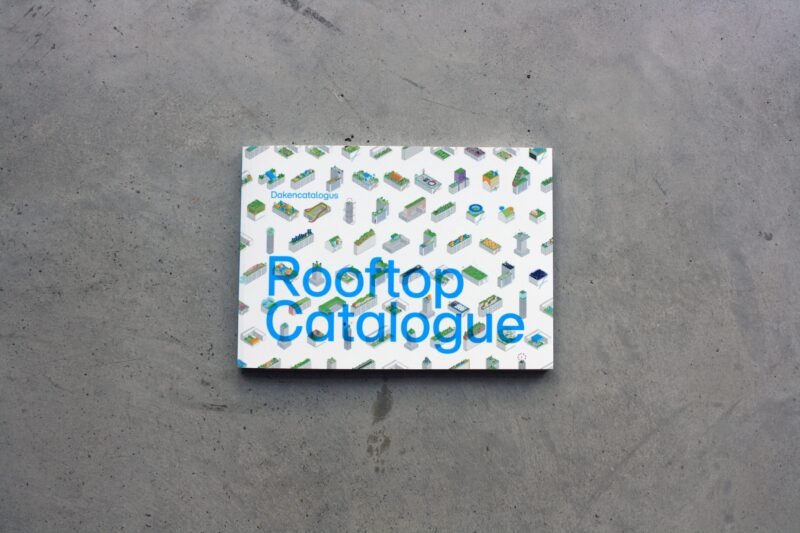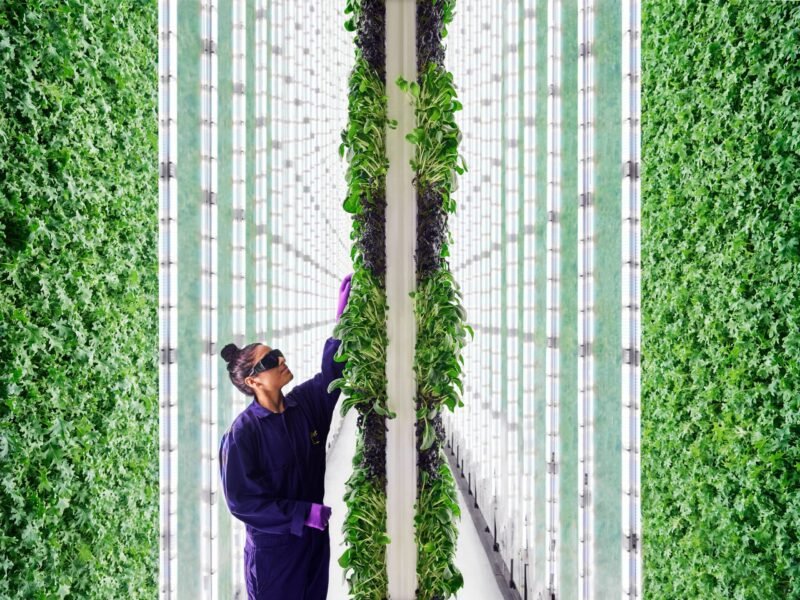B. Bylon: A Rooftop Oasis
A top B. Amsterdam you will find a rooftop oasis. Here GrownDownTown, through their passion of all things green, has created an edible rooftop garden named B. Bylon. This rooftop park comes equipped with freshly grown produce, a restaurant, chickens, compost full of worms, and a rainwater storage system. Recently we had the opportunity to visit this little paradise and speak with Philip Van Traa, founder of GrownDownTown.
The old IBM office building, that is now B Amsterdam, has been converted into an incubator for start-ups and entrepreneurs. The space now includes its own 1750 m2 rooftop oasis thanks to GrownDownTown. Work for this project began in the summer of 2014. Together with Dakdokters, the roofscape was designed and constructed. Wandering this rooftop park, visitors will see a variety of self-sustaining crops including a mint meadow, a Mediterranean herb garden, lettuce, bok choy, and even pear trees. With its recent restaurant edition, seating spaces, and bocce courts B. Bylon provides a great space to enjoy in the city.

All crops at B. Bylon are precultured in baskets at grower Lindenhoff and are sent to mature on the roof. This makes it possible to serve fresh greens at Bureau, the rooftop restaurant, while maintaining a full and healthy garden. A large water storage system was also installed, collecting rainwater underneath the roof floor, providing water to the plants and soil. All green waste from Bureau and the gardens is placed into compost bins where worms produce the compost to feed and grow the rooftop park. Sometimes green waste is also fed to the resident chickens, who also contribute to the compost and lay fresh eggs for use in the restaurant. Through the design and development of the space, GrownDownTown has created a circular experience.

Through creating this space, Van Traa hopes that B. Bylon will be enjoyed by resident employees, Amsterdam residents, and city visitors. “It’s really a unique space. It provides people with the opportunity to relax, or even host an event. Come have a drink, or just sit and enjoy.” On a sunny day B. Bylon receives a regular flow of visitors.

GrownDownTown believes that future cities will be able to sustain themselves on locally grown produce. Next to making cities healthier and greener, this organization wants to make production processes local and visible. In doing so, they hope to strengthen the link between city dwellers and their food. By creating spaces like B. Bylon, GrownDownTown changes the way citizens experience food. By growing crops on top of urban architecture, unused space is used to create a more efficient and healthier city.



